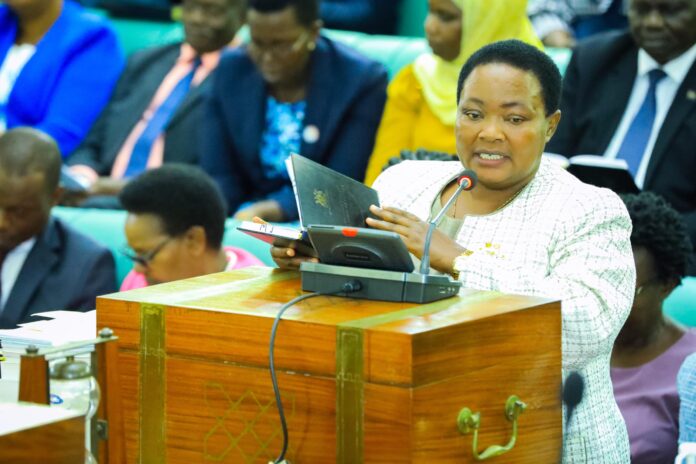The Prime Minister Robinah Nabbanja has addressed concerns regarding the delayed relocation of residents living in flood-prone areas of Ntoroko district.
Nabbanja attributed the holdup to the government’s ongoing struggle to secure land for purchase to facilitate the resettlement of affected residents.
Nabbanja made these remarks on August 8, 2024, while responding to inquiries from Members of Parliament (MPs) representing Ibanda county, Rwemulikya, and Western Region Youth Representative Edson Rugumayo during a plenary session on the floor of parliament.
She emphasized the urgency of finding a solution for those whose homes, schools, and businesses were submerged following the bursting of the river’s banks.
“We have been to their area many times, aiming to find a lasting solution for people to leave those waterlogged areas. The President suggested that we look for land to buy for the people,” Nabbanja said.
However, Nabbanja noted that they have struggled to find suitable land. She further confirmed that the government is still waiting for the district to identify viable land options for resettlement, asserting that the government will provide financial support for the purchase once a suitable one is located.
“The only option left is Semliki National Park, which presents constitutional challenges. We have also explored other potential lands, but many of those have also become submerged,” Nabbanja added.
In addition to the relocation issue, Nabbanja announced the operationalization of five new cities—Entebbe, Moroto, Nakasongola, Kabale, and Wakiso—set to take place on July 1, 2025.
She noted that this move will increase the number of MPs from the current 553 ahead of the 2026 general elections.
“The operationalization of these cities was delayed due to an amendment to the Local Government Act in August 2020, which stipulated that new administrative units can only be activated six months before general elections,” she explained.
The Ministry of Local Government is currently conducting technical studies and consultations with stakeholders to prepare for this transition.















